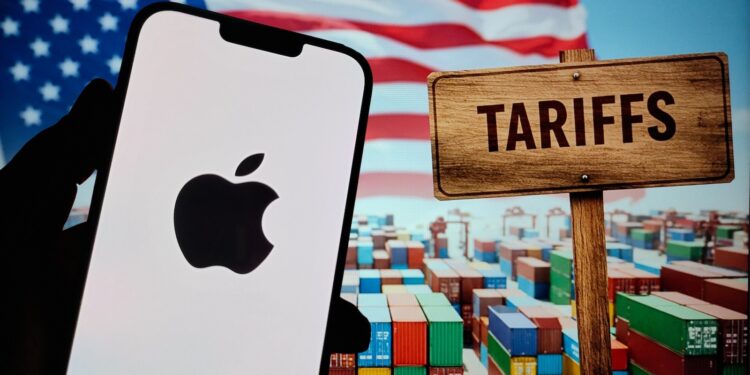When Apple comes under the US government's scrutiny, many listen closely – especially when it comes to potential price increases for iPhones. Trump's policy of punitive tariffs has once again made headlines. The big question: Will the iPhone become more expensive in the US? Statements from the White House sound different – but are they credible?
As part of his tariff policy, Donald Trump has threatened a 25 percent import tariff on iPhones. This would have a direct impact on Apple—and potentially on US users as buyers. However, according to the White House and Trump's economic advisor Kevin Hassett, consumers won't feel any impact. Instead, Apple itself will be responsible for the additional costs. This sounds reassuring at first, but raises many questions.
Apple should bear the tariffs itself
Kevin Hassett, head of the National Economic Council and advisor to Trump, downplays the significance of the tariffs. In an interview with CNBC, he speaks of "tiny little tariffs" and explains that they are not as bad as many people are making them out to be. According to him, companies – in this case Apple – should absorb the costs themselves. He emphasizes that there is no reason to panic, although many CEOs are publicly sounding the alarm. According to Hassett, they tell him the opposite behind closed doors because they do not want to risk negative repercussions on their creditworthiness. Hassett sees the public criticism as a strategy to exert political pressure. In his opinion, companies are trying to negotiate the tariffs by making exaggerated statements. He describes the whole thing as exaggerated and rhetorically charged.
iPhone production cannot be relocated immediately
However, one sticking point remains: Apple produces its iPhones in Asia. The production chain cannot be relocated to the US in the short term. Hassett admits that "it's impossible to change things overnight." When asked whether Apple could expect a delay in tariffs if it had a long-term plan to relocate production, he evades the question. He simply says:
We'll see what happens.
This is vague and leaves open whether the government is willing to accommodate Apple if the company wants to produce in the US.
900 million dollars in additional costs even before the new tariffs
Apple itself has already communicated, in connection with previous tariffs, that it expects around $900 million in tariff costs in the June quarter. However, this sum dates back to the time before the new 25 percent tariff measure. Analysts, including those at Morgan Stanley, assume that Apple should actually pass the additional costs on to US customers – meaning it should increase iPhone prices to maintain its margins. Hassett also disagrees. He says Apple will not pass the tariffs on to customers. He argues that Apple is flexible enough to offset this internally.
Supply elasticity – an economic term as an explanation
One term that comes up in this context is "supply elasticity." Hassett means that Apple can respond to price changes by adjusting production volume. If demand falls, Apple can produce less without incurring losses. If demand increases, Apple can produce more accordingly. However, this doesn't change the fact that the punitive tariffs take effect immediately, whereas a production change would take years—if that's even realistic.
Comparison to other companies
Trump has explicitly instructed Walmart not to pass on the cost of its tariffs to customers. Home Depot has announced on its own initiative that it will no longer stock heavily tariffed products. Apple has not received such a direct instruction. According to Hassett, however, this isn't necessary because Apple pays for its own costs anyway. Whether this is actually the case remains to be seen. While Apple emphasizes to the outside world that it is trying to remain stable, internal figures and analyst estimates point to a different direction.
Customs costs and their real consequences for Apple
Officially, as an Apple customer, you shouldn't notice anything about Trump's new tariffs if you live in the US. The government says Apple will cover the costs. Analysts are more skeptical, pointing out that a price increase would make economic sense. Whether Apple will truly forgo higher prices in the long term remains to be seen. In any case, the pressure on the company is growing – both politically and economically. (Image: Shutterstock / Sunil Praj)
- Cook skips Middle East trip – Trump threatens Apple with tariffs
- Apple must further adapt the App Store in Europe
- Apple extends Self Service Repair to the iPad





